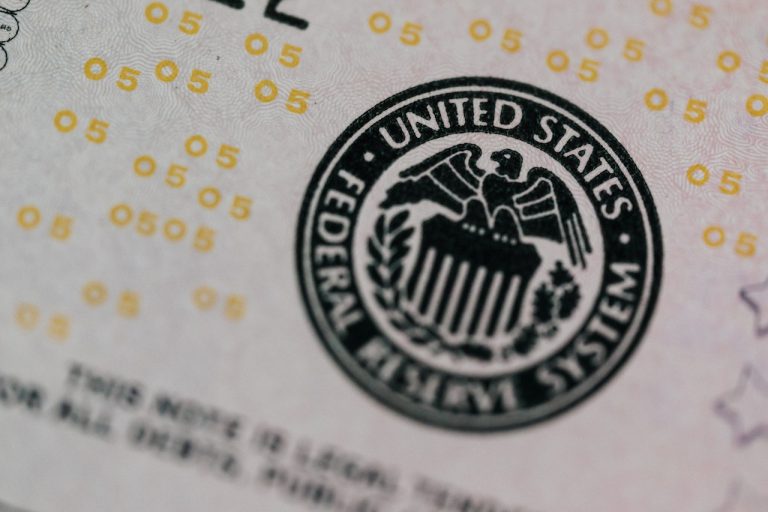As the American middle class has been rocked by 2022’s record inflation, the Governor of Pennsylvania wants to deploy the same solution that many argue got the country into its current mess: another round of helicopter drop financial stimulus checks.
“I want to give Pennsylvanians the step up they need to survive inflation and higher prices. So, $2,000 to any family, to families making $80,000 dollars or less. We estimated that about 250,000 families will apply for this,” said Gov. Tom Wolf, a Democrat, according to Aug. 29 reporting by Fox News.
The Governor claimed that the one-off $2,000 central disbursement would “give families some room to get back on their feet” because “we hope prices are up temporarily.”
MORE ON THE AMERICAN ECONOMY
- Almost 20% of US Households Past Due on Utility Bills
- Thanks, Inflation. 40 Percent of Americans Have No Money to Save, Even if They Want to
- Pawn Shops Get Busy as People Sell Their Stuff to Pay for Gas, Groceries
- Communist China Has Been Trying to Subvert the Federal Reserve Since 2013: Senate Report
Wolf argued that the airdrop would not have inflationary recoil because, “We have an $800 billion…economy in Pennsylvania.”
“Five hundred million dollars is less than one-tenth of one percent of what this commonwealth generates annually. We can afford to do this.”
Success
You are now signed up for our newsletter
Success
Check your email to complete sign up
Pittsburgh’s Action 4 News paraphrased the Governor as stating that PA is sitting pretty on a $15 billion surplus.
The outlet added that Wolf has coined a name for the stimulus project — the “Pennsylvania Opportunity Program.”
To inflate, or not to inflate
So, do government stimulus checks affect inflation or not? A May 9 article by BGR, a branch of the Penske Media Corporation, which includes outlets such as Rolling Stone and Billboard, said it does, based on data from no less than the Federal Reserve.
The article was based on a March 28 report by the Federal Reserve Bank of San Francisco, titled Why is U.S. Inflation Higher Than in Other Countries?
The report noted, “Since the first half of 2021, U.S. inflation has increasingly outpaced inflation in other developed countries,” before pointing out, “Estimates suggest that fiscal support measures designed to counteract the severity of the pandemic’s economic effect may have contributed to this divergence by raising inflation about 3 percentage points by the end of 2021.”
The Fed stated that it used “the interplay between when assistance was delivered and how households responded to successive COVID waves” to construct a “dynamic model” to calculate the contribution of airdrops to the inflationary spikes.
July 29 reporting by Forbes on the topic of Trump-era federal COVID stimulus checks paraphrased survey data from the Bureau of Labor Statistics as finding that the “top uses for the money included food (66%), rent (28%) and mortgage payments (23%).”
However, the article went on to point out that in American history, government stimulus checks have been largely unprecedented.
The only two prior were from the “New Deal” during the 1933 Great Depression “sent to farmers to compensate for reduced production, and to individuals” and during the 2008 financial crisis, which a comparatively modest rebate “of up to $600 per taxpayer, with an additional $300 payment per child” was dispensed.
Old wine, new bottle
The plan is not exactly novel, however. In April, CBS Pittsburgh reported that the state was sitting on $2.2 billion donated through one of the Biden Administration’s many multi-trillion dollar socialist-style spending packages.
At the time, Wolf wanted to use nearly a quarter of the money for the exact same plan, lamenting that the Republican-controlled legislature was not in favor of an additional stimulus check.
State Sen. Devlin Robinson, a Republican, told CBS, “Well, he’s right that if we don’t use the money, we lose it. But there’s better ways to spend the money. Out here in Pittsburgh, we have bridges falling around the city. We have a lot of closures.”
A few months later, a July article by Pennsylvania media outlet Reading Eagle stated that most of the federal disbursement had already been reallocated in the state budget.
“A deal between Wolf and the Republican-led Legislature found other uses for the $2.2 billion in remaining federal stimulus dollars, funding at least 20 other programs,” the article read.
Such programs included $640 million for “conservation efforts,” $375 million to “help low- and middle-income homeowners and landlords fix their properties,” and $140 million to subsidize state income tax costs for people aged 65+ and those with disabilities, the article stated.
In early August, as midterm elections approach, Wolf, who leaves office in January of 2023, once again began stoking the cinders of a state-funded $2,000 stimulus, stated area media outlet LevittTownNow reported.
The most recent chatter was once again characterized along party lines.
On one side, Wolf continues to lament being blocked in the legislature by the GOP.
Joining the Governor in the opinion are the Mayors of Pittsburgh and Sharpsburg, multiple Democrat members of state legislature, and several non profits who feel that a government handout would serve as a boon to their target demographic, reported Action News.
And naturally, on the other, is the GOP.
The Comms Director for Senate Majority Leader Kim Ward pulled no punches in comments to the outlet via email, “The fact is Gov. Wolf abandoned this irrational idea during budget negotiations because it lacked commonsense.”
She added, “The resurrection of this concept is disingenuous on the part of Gov. Wolf and says more about his political calculus and willingness to create a false sense of hope for Pennsylvanians instead of providing clarity for Pennsylvanians.”















